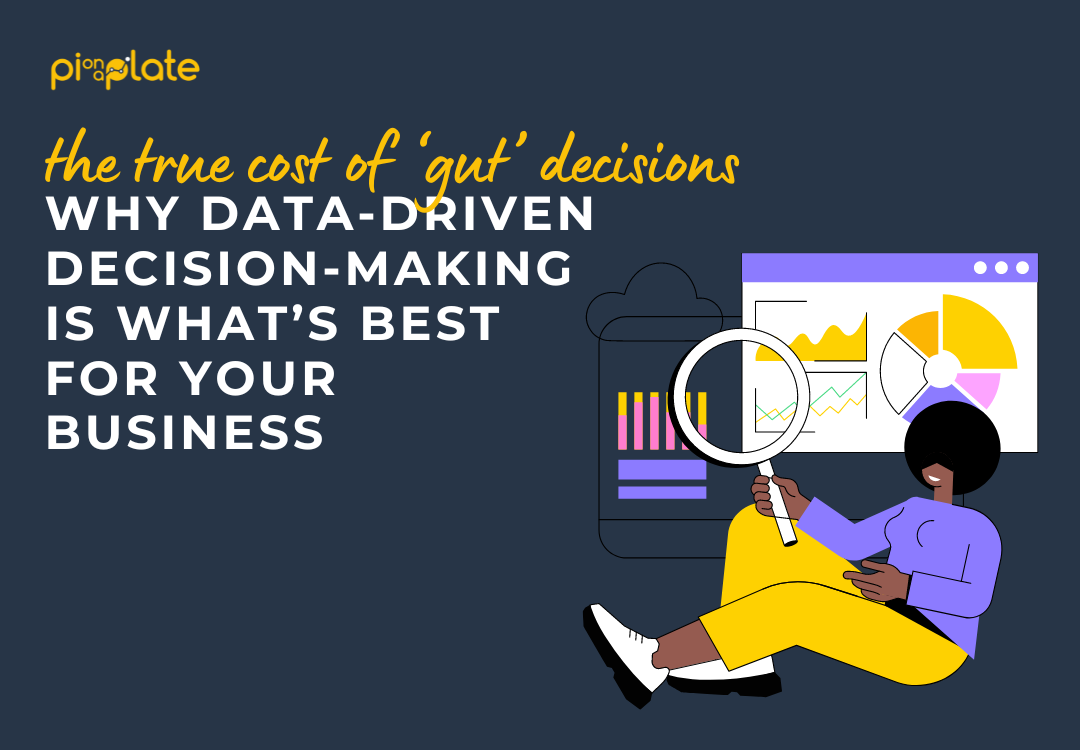Feeling like your gut is leading you on a treasure hunt but ending up with a can of worms is an experience many of us know well. In the business world, depending solely on gut feelings and experience poses risks, and leaving decisions to chance is a luxury few can afford. It’s time to shift gears, leaving behind outdated methods and embracing a more reliable and sophisticated strategy – data-based decision-making.
The Blame Game
Making decisions based on gut instincts might seem like a bold move, but when things go south, who bears the brunt of the blame? It’s a challenge I’ve seen working with many organisations. In the narrative of data-driven decisions, accountability takes centre stage. But when data isn’t present on the back of a bad outcome, a new question comes to the forefront. Is there a ‘free pass’ for the decision maker just because they did the ‘best they could’? Without data-based decisions, the blame is often passed around the organisation like a hot potato – the CIO for not having the systems, the CFO for not having the information, and the COO for not knowing the business well enough. The focus shifts from the business to the blame game, and the decision-making process is left hindered in uncertainty.
The True Cost of Poor Decisions
Navigating the aftermath of poor decisions is like peeling back the layers of an onion. The tears aren’t just from missed opportunities but also from dwindling financial stability, strained customer relations, and a culture left frayed at the edges. The tension in the air as decisions are made in haste unravels a sense of mistrust and uncertainty. It’s in the hushed conversations in the hallway and the collective eye-rolls during meetings.
The real cost isn’t confined to paper; it’s in the real-life moments of eye-contact avoidance and the sinking feeling in the pit of your stomach when you grasp the repercussions for your organisation. Trust me, it’s a performance you’d rather not headline.
The Three Musketeers of Data-Based Decisions:
When I talk about data-based decisions, I mean having information that is accurate, timely, and fairly represents the situation at hand. Accuracy ensures that decisions are based on real insights rather than skewed perceptions. Timeliness ensures that decisions aren’t made with outdated information, much like relying on last year’s weather forecast for today’s picnic. Fair representation guarantees that the data isn’t playing favourites, ensuring an unbiased view of the business landscape. Without these key elements, businesses risk losing trust in their decision-making processes, reverting to gut instincts out of sheer necessity.
Ensuring this trifecta comes down to harnessing the power of advanced analytics tools like Power BI. Putting story-telling at its core with a modern UX, Power BI seamlessly transforms raw data into visually compelling insights. This not only streamlines decision-making processes but also empowers your business to uncover patterns, trends, and correlations, ultimately paving the way for informed and strategic choices.
In the ever-evolving landscape of business, success is not about taking blind leaps; it’s about navigating confidently with accurate, timely, and fair data. The cost of poor decisions extends beyond financial loss and can ripple through your whole organisation. Embracing data-based decision making, with the aid of tools like PowerBI, not only reduces these risks, but unlocks a world of valuable insights. If you are ready to explore what PowerBI could do for your business, let’s have a chat!

